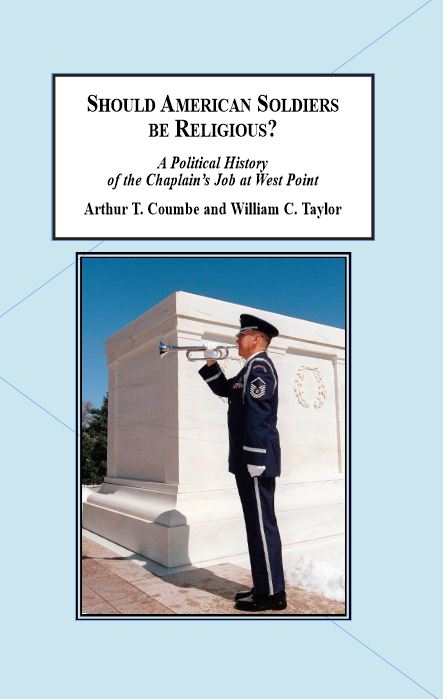This is our backup site. Click here to visit our main site at MellenPress.com
Should American Soldiers be Religious? A Political History of the Chaplain's Job at West Point

| Author: | Coumbe, Arthur Taylor, William C. | |
| Year: | 2019 | |
| Pages: | 344 | |
| ISBN: | 1-4955-0773-4 978-1-4955-0773-1 | |
| Price: | $59.95 | |
Dr. Arthur Coumbe and William Taylor break down the political history of the Chaplain's post at West Point from the foundation of the post to the modern era. The two scholars break down the Chaplain post, its duties, and the nature of the post in the modern era and its role in the military.
Reviews
"The U.S. Military Academy has wrestled with religion since 1812, the year that Congress authorized a chaplain for the Corps of Cadets. Both Congress and the Academy’s leaders have viewed spirituality as an important component of an officer’s professional development, and an appreciation of religious precepts and religion’s doctrinal contours as an integral part of a liberal education. Moral reasoning, critical thinking, and cultural literacy were all bound up in their minds with religion and the ethical systems that grew out of it. In the Academy’s early years, spirituality and religious instruction were, for the most part, limited to the confines of Christianity–and Protestant Christianity as taught and practiced in the Episcopal Church at that. The domain of religion and spirituality later expanded, rendering its boundaries less distinct, but the Military Academy continued its struggle to establish the appropriate relationship between religious faith (and, more recently, the absence of faith) and officership in the U.S. Army. It is an issue that still commands the attention of Academy leaders today."
From the Preface
From the Preface
Table of Contents
Acknowledgements
Preface
I. A Chaplain for West Point
II. Denominational Developments
III. A Military Chaplain for the Chapel?
IV. The Chapel Program
V. Changing Denominational Preferences
VI. Denominational Changes
VII. Religion at West Point
VIII. The Nones
IX. Is There a "God-Gap"?
X. Conclusion
Bibliography
Preface
I. A Chaplain for West Point
II. Denominational Developments
III. A Military Chaplain for the Chapel?
IV. The Chapel Program
V. Changing Denominational Preferences
VI. Denominational Changes
VII. Religion at West Point
VIII. The Nones
IX. Is There a "God-Gap"?
X. Conclusion
Bibliography
